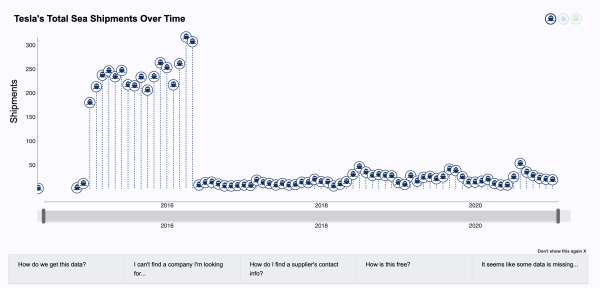While I'm not really in a supply chain business, they are interesting to me because they do with physical things, many of the same things I do with virtual things.
Supply chains use complex systems to achieve "simple" goals. Figuring out how to streamline processes is both an art and science.
Global supply chains remind me of the complicated machinery and gearing that goes into a finely made analog watch … the watchmakers know that even if you don't know how the watch was made or what a mechanism does, it's still interesting to watch it tick and admire the engineering.
Recently I found a website – ImportYeti – that tracks over 60 million companies' sea shipment records. Here is an example showing Tesla.
 via Import Yeti
via Import Yeti
It uses bills of lading and other public information to tell you information about the frequency of shipments, the suppliers, and what they delivered.
There is a ton of interesting information here. Hope you find some creative ways to use it.
If you are interested in this, I also suggest looking at Eli Goldratt's The Goal, which describes the "Theory of Constraints," which deals with how bottlenecks limit performance.

Leave a Reply